Why Is My Water Heater Leaking?
If you see a pool of water around your water heater, you’re right to be concerned. A leak is a sure sign your water heater has a problem that needs immediate attention.
What causes a water heater to leak?
Most water heater leaks are caused by the following problems:
Below, we’ll go into more detail about each of these problems and how to fix them. But first, let’s look at a couple of things you should do right after you call a plumber.
Need a plumber to repair your water heater?
Our expert plumbers are ready to help—24/7!
See a leak? Turn off the water heater’s fuel source and water supply
Right after you call a plumber, the first thing you’ll want to do is shut off the fuel source to your water heater. This will protect the tank from damage if it is overheating or has too much pressure built up inside.
Here’s how to shut off the fuel source:
- If you have a gas water heater, look for a control valve on the side of the tank. Turn the gas control to the OFF position to shut off the gas burners.
If you have an electric water heater, go to your home’s main electrical panel and find the breaker labeled “water heater.” Flip the breaker to the OFF position to shut off power to the water heater.
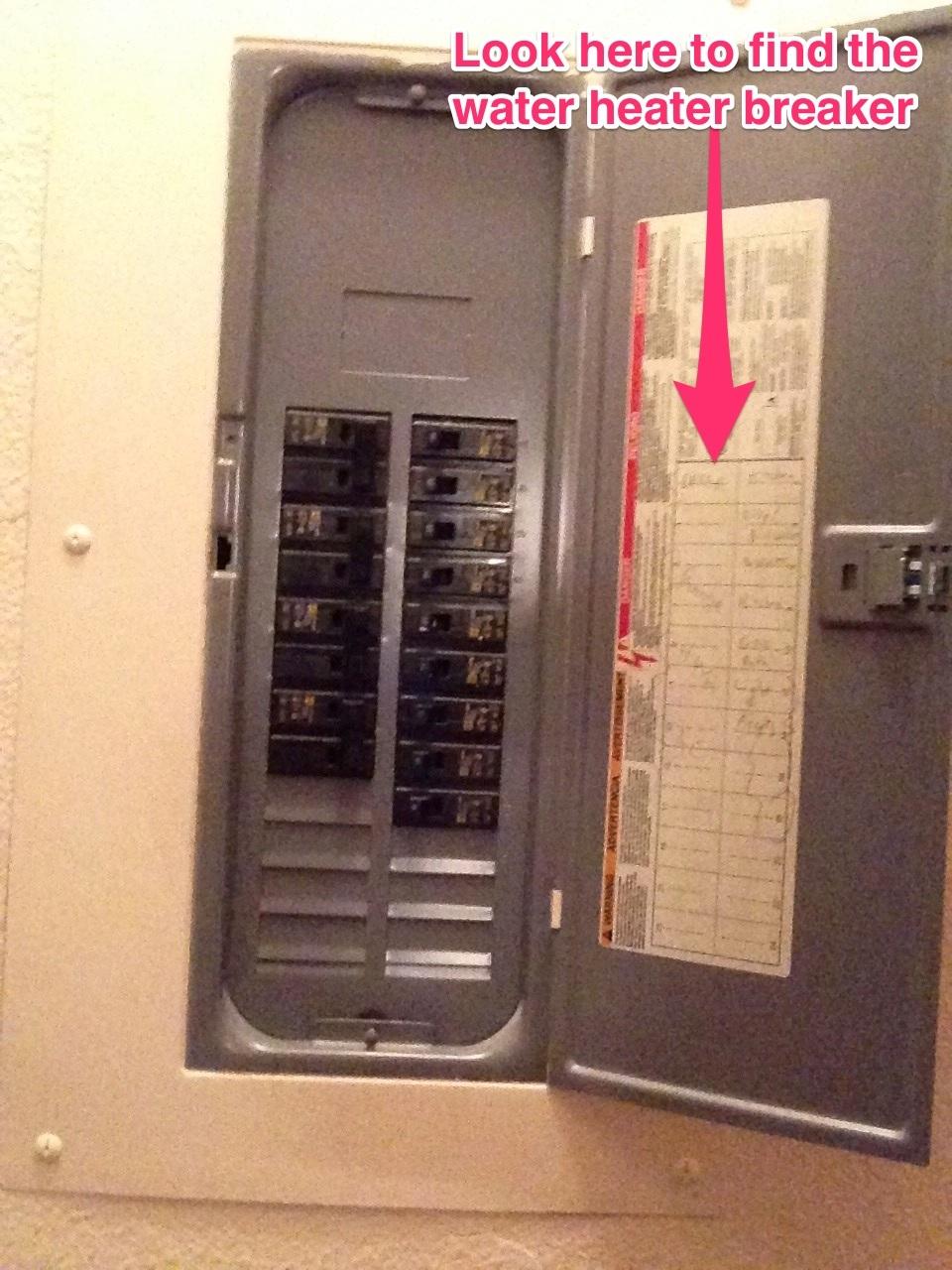
Next, we recommend shutting off the water supply to the water heater to reduce the amount of water that leaks out of the tank.
To shut off the water supply, look for two lines coming out of the top of the tank. One of these lines (the cold inlet line, pictured below) should have a valve which you can turn. Turn the valve to stop water from entering the tank.
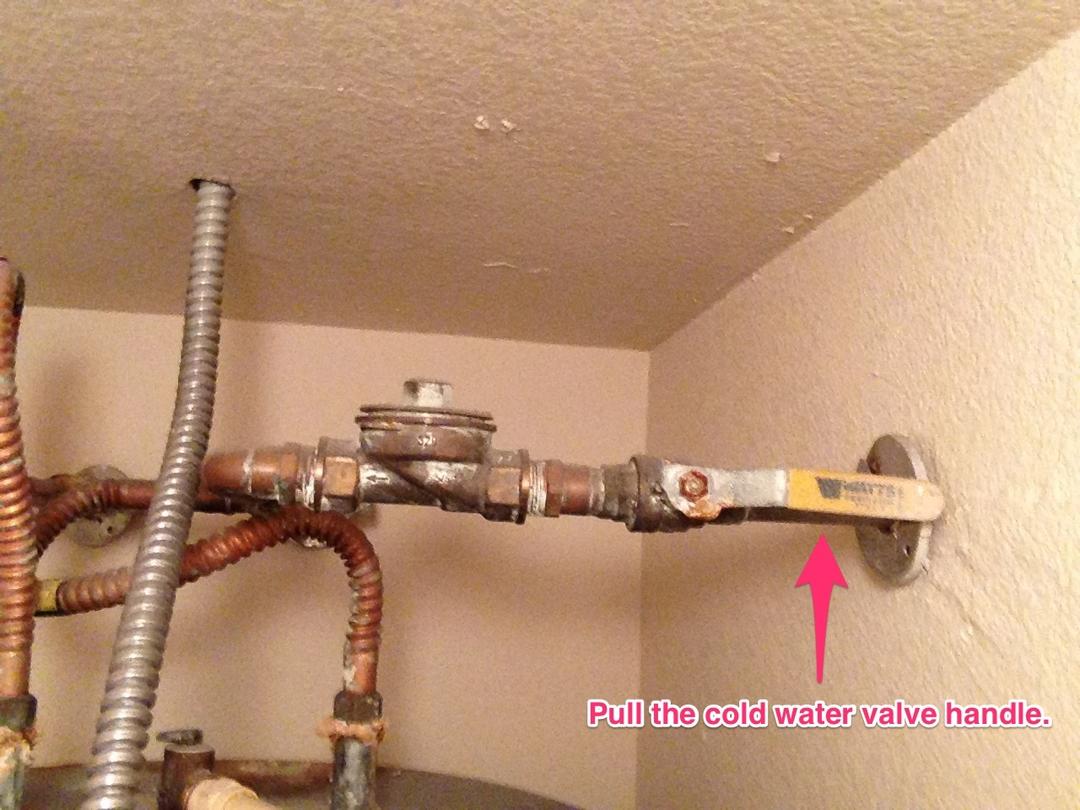
If you don’t see a cold water valve, you can also go to your home’s main water valve and shut it off. The water main shut off valve is usually located in the basement or on an outside wall. Turning off this valve will cut off all incoming water to your home, so only shut off the main valve if you don’t see a cold water valve on your water heater.
Now that you’ve turned off the water heater’s fuel source and water supply, let’s look at some problems that cause your water heater to leak.
Reason #1: A loose pipe connection
Over time, the connections on the cold and hot water pipes can loosen, which causes water to leak from the top of your water heater.
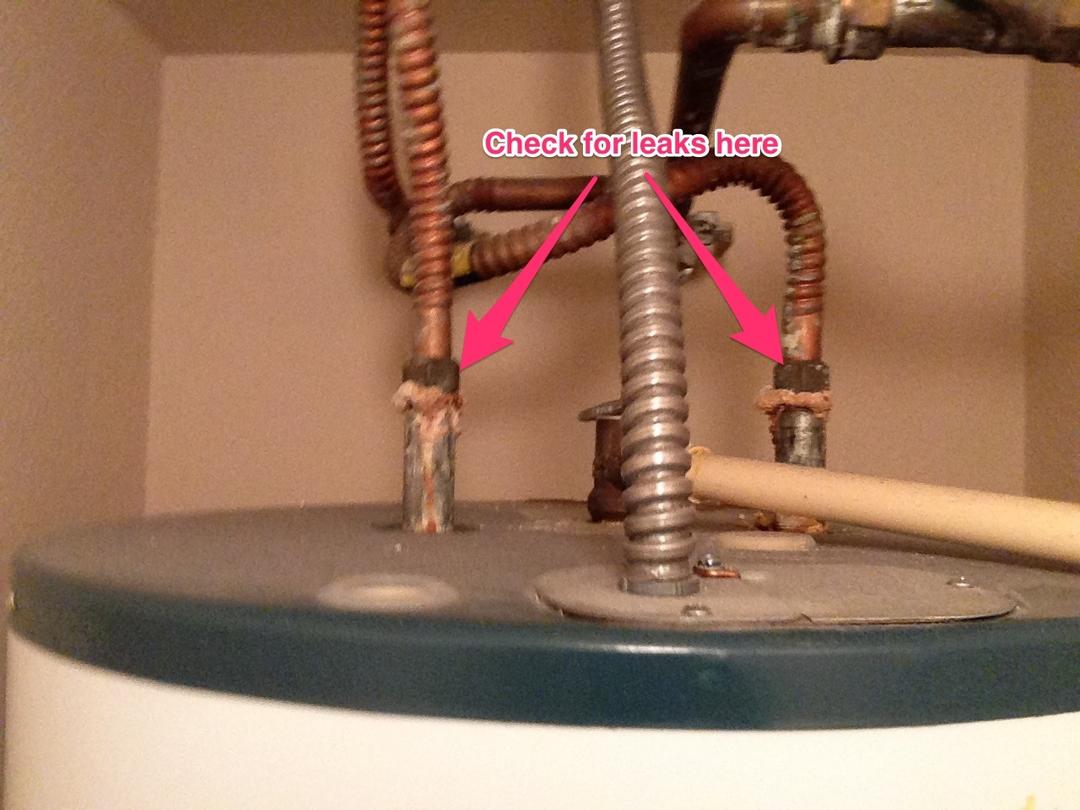
Solution: Go to the top of your water heater and see if you notice any water coming out of the two pipes at the top. You can use a wrench to try and tighten the connections, but if the leaking persists, you’ll need to call a plumber to inspect the connections.
Reason #2: A worn gasket
If you have an electric water heater and see water coming from the side of the tank, a worn gasket could be the cause of the leak.
Electric water heaters use heating elements inside the tank to heat water. Sometimes the rubber gasket on the bottom of the heating element wears out, which causes water to leak through and out of the tank.
Solution: If a deteriorated gasket is the problem, a professional can remove the heating element and replace the worn-out gasket.
Reason #3: High pressure in the tank
Do you see a considerable amount of water near the bottom of the tank that seems to be leaking from a CPVC or copper pipe? If so, your water heater may be releasing water to reduce high pressure inside the tank.
We’ll explain: Your water heater has a safety device called the TPR (temperature and pressure relief) valve. This valve automatically opens when the pressure or temperature inside the tank is dangerously high.
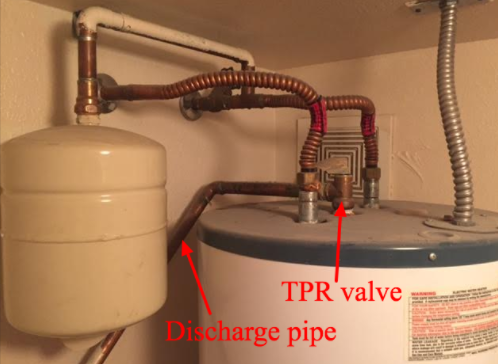
The discharged water runs down a CPVC or copper pipe that goes down the length of the tank and leads into a floor drain or bucket. In some homes, the discharge pipe goes through the wall and drains outside.
Solution: You’ll need to contact a plumber to determine whether your tank has high pressure problems and to inspect the TPR valve. Once a TPR valve opens, it can have trouble reseating itself, which can cause it to leak water when it’s not supposed to. A professional can test the TPR valve to make sure it opens and closes correctly so it will function properly in another emergency.
Reason #4: A faulty TPR valve connection
If you see a little bit of water leaking from the TPR valve itself (not coming out of the discharge pipe as we discussed above), it’s usually a sign that the valve connection is faulty.
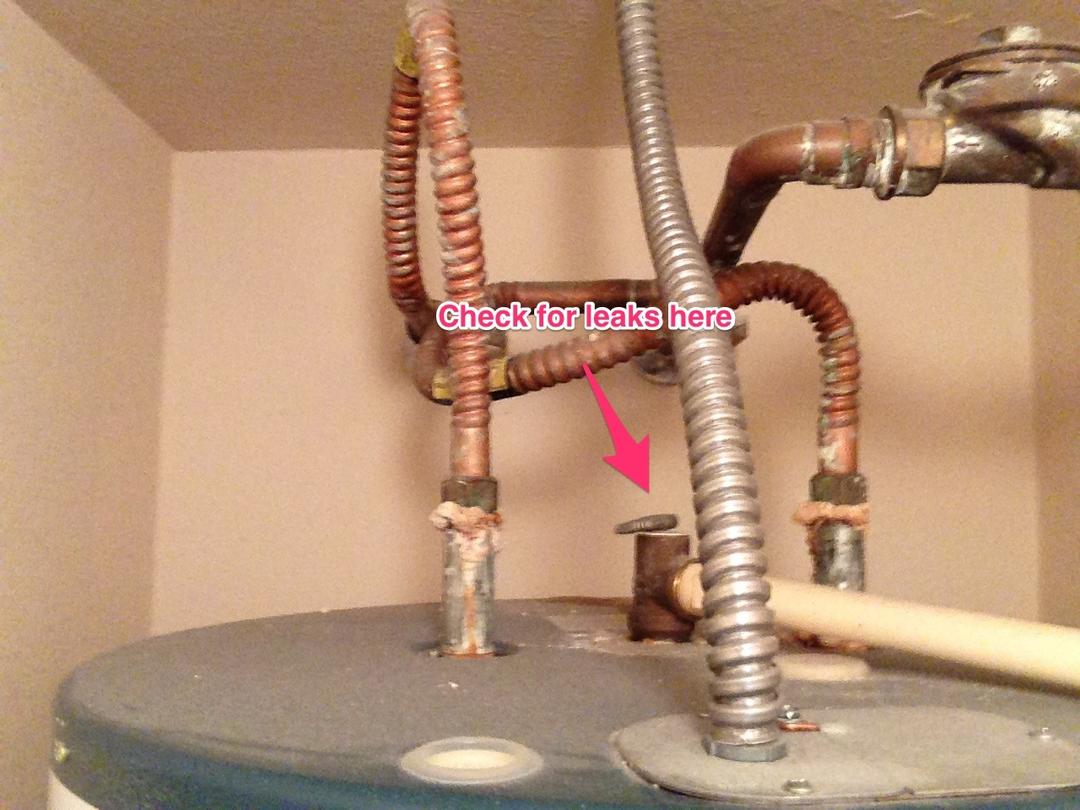
Solution: If a plumber determines your TPR valve is faulty, they will replace it with a new one.
Reason #5: A cracked tank
If you see water leaking from the body of the water heater, it means the tank itself has corroded from the inside.
Solution: The bad news is that if the body of the tank is leaking, the water heater will need to be replaced. Leaks in the tank itself cannot usually be repaired effectively, so the best solution is to get a new water heater.
Want a plumber to repair your water heater?
No matter what kind of water heater problem you have, our expert plumbers have the training and experience too quickly and thoroughly fix the issue. At Michael & Son, we offer 24/7 emergency service and our plumbers complete 99% of repairs the same day. Learn more about what to expect when you hire us by visiting our water heater repair page.
This blog was written on Sep 03, 2020. Any pricing information is subject to change.

